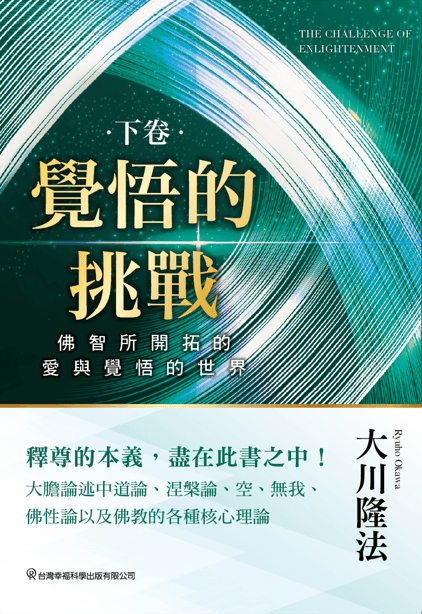IRH Press
Book, The Challenge of Enlightenment volumeⅡ, Ryuho Okawa, Chinese Traditional
Book, The Challenge of Enlightenment volumeⅡ, Ryuho Okawa, Chinese Traditional
Não foi possível carregar a disponibilidade de retirada.
The Challenge of Enlightenment differs in many ways from the extensive range of Buddhist publications presently available in the world. This is due in part to the manner in which this work corrects many false assumptions which have been propagated in Buddhist literature throughout history. Of these false assumptions, a crucial one is the misconception that Buddhism is an atheistic or transtheistic religion. Rather, Ryuho Okawa presents Buddhism as the timeless theistic religion that Shakyamuni conceived it as, and explains that Shakyamuni taught his disciples with the foundation that they already possessed theistic faith, as was the accepted custom during the time and place that Shakyamuni lived and taught.
It is furthermore explained that the reason that 84,000 teachings were given was that Shakyamuni’s teachings were originally intended for specific disciples. It was likewise the interpretation of the disciples, their students, and so forth, which ultimately resulted in a loss of the essence of the original teachings. With this considered, The Challenge of Enlightenment should be considered the latest standard of the original Buddhist teachings. Ryuho Okawa explained that the core teachings of Buddhism such as ‘egolessness,’ ‘void,’ middle way, and so on, were originally preached for solving an individual’s life’s problems as no one can escape from the four pains and eight pains as long as we live in this world.
As such, the Buddhist teachings provided throughout The Challenge of Enlightenment are accessible and clearly defined. The language departs from notions of being cryptic, elusive, or being filled with unnecessary and confusing terminology. These teachings are for all of humankind’s soul growth and happiness and are accordingly written in a manner that any person may comprehend and put into practice immediately after reading. At the same time, these teachings are religious and alive. One does not come to any assumptions of nihilism or atheism from this body of teachings, and instead may come to realize the theistic essence at the core of Buddhism which is to cultivate our inner mind, attain wisdom, and pursue the path to enlightenment.
The Challenge of Enlightenment is an excellent book for any person regardless of their religious and spiritual background. Anyone who practices the Four Noble Truths which are taught in this book will understand how effective and practical these teachings are. Those seeking a practical Buddhist book will find that The Challenge of Enlightenment offers simple yet powerful methods called the Four Noble Truths for tackling everyday life’s problems and obstacles that are confronted throughout the lifespan, in a manner that is considerate of the contemporary human condition, and in a way that generates wisdom, a state of enlightened activity. This work is a revelation of Ryuho Okawa’s turning of the New Dharma Wheel in the current era, and those seeking an authentic path of Buddhism need not look further.
Materiais
Materiais
Papel
Compartilhar


